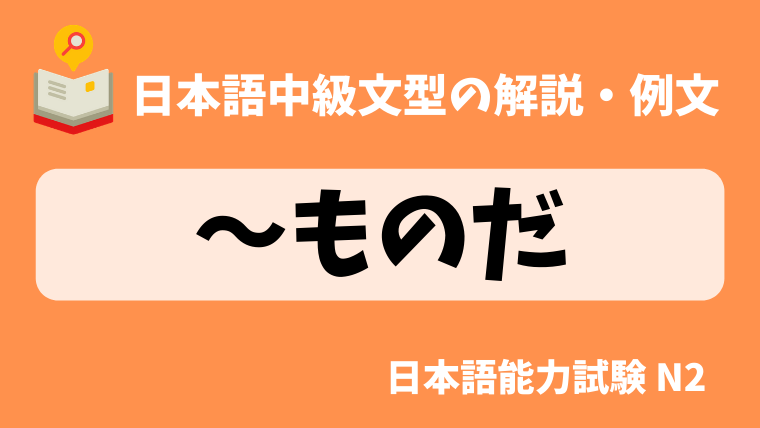解説:〜ものだ
●意味
① もともと~だ / 本来〜だ
物事の本来の性質や傾向などを表す。
naturally / inherently ~
Used to express the inherent nature or tendency of something.
② 当然〜すべきだ
一般常識としてそうすべきだと言いたいときに使う表現。
naturally expected to ~
Used to express what should be done as common sense.
●接続
①
V(辞書形 / ナイ形)+ ものだ
イA + ものだ
ナAな + ものだ
②
V(辞書形 / ナイ形)+ ものだ
●日本語能力試験(JLPT)のレベル
N2
例文
1. もともと~だ / 本来〜だ
疲れれば、誰でも眠くなるものです。
Anyone gets sleepy when they’re tired.
赤ちゃんは、よく泣くものですよ。
It’s normal for babies to cry frequently.
プレゼントをもらったら、誰でも嬉しいものです。
Everyone gets happy when they receive a gift.
どんな人でも、失敗はするものです。
Everyone makes mistakes, it’s part of life.
女心を理解するのは難しいものだ。
It’s hard to understand a woman’s mind.
大勢の人の前でスピーチをするのは、誰でも緊張するものです。
Anyone would feel nervous giving a speech in front of a large crowd.
2. 当然〜すべきだ(一般常識)
上司には敬語を使うものだ。
You should use polite language with your boss.
お年寄りには優しくするものだ。
You should be kind to the elderly.
電子の中では静かにするものだ。
You should be quiet in the library.
男性が女性に年齢を聞くものではない。
It’s not appropriate for a man to ask a woman her age.
人の悪口は言うものではないよ。
You shouldn’t speak ill of others.



